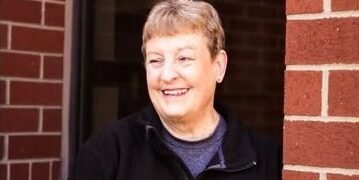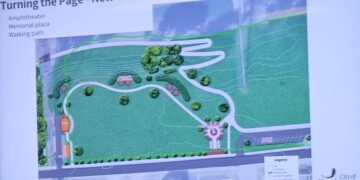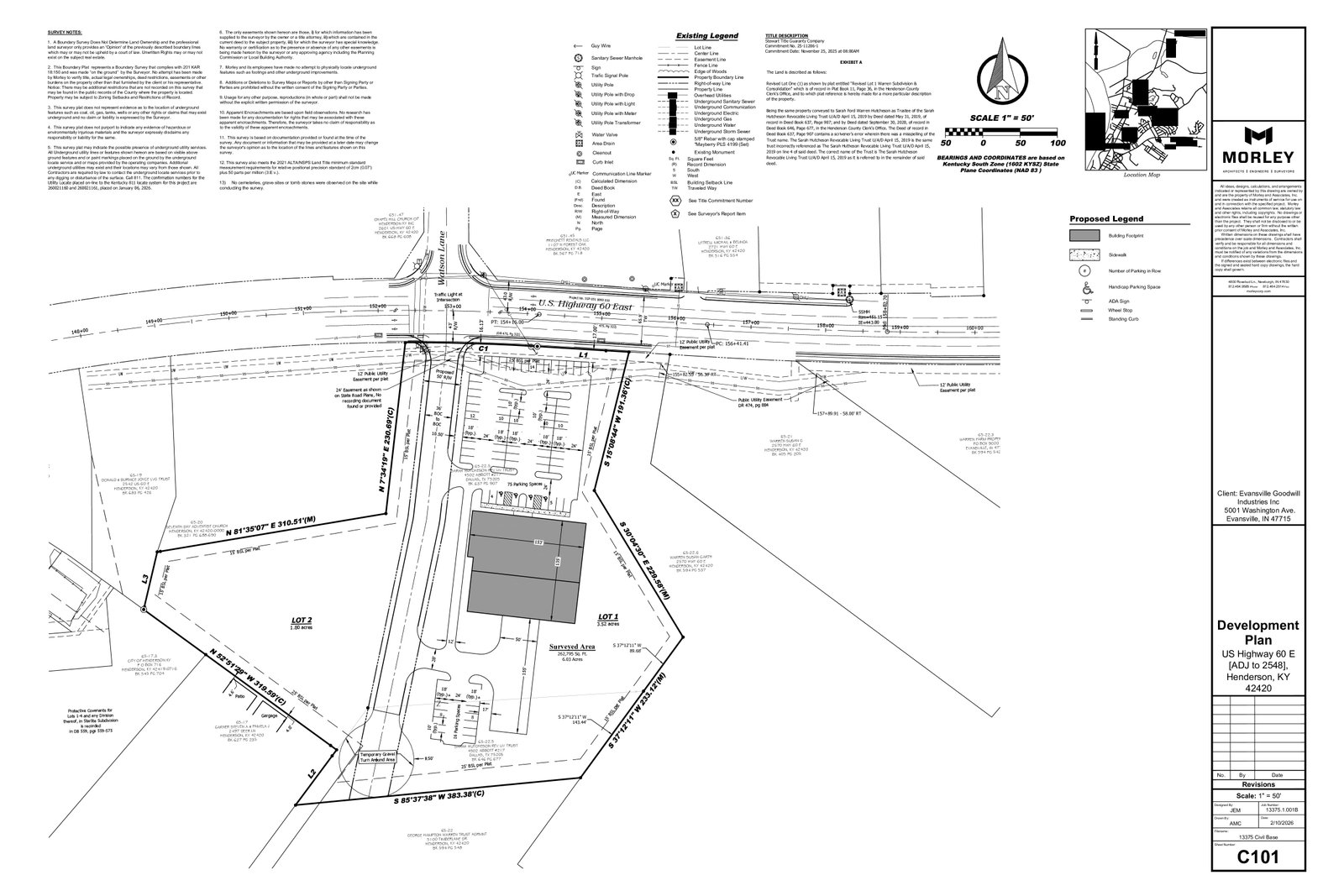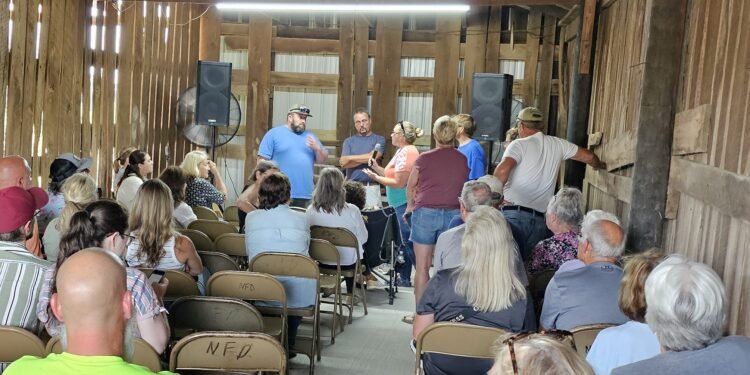Two magistrates said at the end of a community meeting on Monday evening that they’ll push for a two-year moratorium on wind turbines and battery energy storage systems.
Responding to a challenge from James Franks, who asked for a commitment in getting a 24-month moratorium on the wind and BESS, Magistrate Taylor Tompkins said he would bring it up at the next Henderson County Fiscal Court meeting. Magistrate Tim Southard said he would second it.
Franks, a Toy Anthoston Road resident whose home sits some 5,000-6,000 feet from the proposed location of a BESS system, told the magistrates that they need to “rattle some cages.”
Both magistrates have said they aren’t proponents of the wind turbine project that Cordelio Power is pursuing but that the fiscal court needs to careful about the details of an ordinance it approves and do its due diligence.
The magistrates’ assurance they’d discuss a new moratorium at the next fiscal court meeting was the culmination of a nearly 1 ½ hour community meeting organized by a group of advocates opposing wind turbines locating to the county. It was held in a barn on the family land of Lisa Meyer, in Niagara off of Ky. 136.
Between 60-70 people sat in folding chairs pulled from the Niagara Fire Department and listened to the back-and-forth on a portable PA system that sometimes was drowned out by the whir of industrial fans. Many more people stood at the entrance or brought law chairs and listened from outside the barn.
The magistrates weren’t expected to be the meeting’s main attraction. Organizers had initially scheduled an environmental scientist with the Kentucky Department for Environmental Protection who was going to talk about BESS. But he cancelled Monday afternoon, leaving the bulk of the meeting a question-and-answer session, sometimes heated, with Southard and Tompkins.
Southard said fiscal court must tread carefully as it first investigates wind turbines and write ordinances regulating them.
If an ordinance were deemed too restrictive or there were some other piece objectionable to companies looking to locate here, they could file suit against fiscal court, Southard said. He added that county government wants to stay out of the courtroom because if a judge were to rule against the county, that could be the only chance local government has to restrict wind turbines in the county.
Deirdre McConathy, whose farm abuts a parcel where a BESS system has been proposed, said that the fiscal court can’t tell who they can or can’t lease their land to. But fiscal court can write an ordinance that doesn’t allow wind turbines and BESS.
“You can say no,” she told the magistrates. “We have to get brave.”
Though opposition has arisen since the news of a wind turbine study that was conducted by the FAA early in June, speakers at Monday’s meeting touched on solar, as well. The county currently has a 2-year moratorium in place on any new permitting for solar installations.
Attendees asked if any data has been collected regarding the solar fields in Robards. Tompkins and Southard said there hasn’t been anything official yet.
Lisa Lovell, a Niagara resident, suggested that an independent committee not made up of local officials be formed to gather the data regarding the solar arrays.
Lower property values were also discussed, to which Tompkins said there could be a way to reimburse property owners affected by solar arrays to get some money if when they sell they can show proof that the property’s value decreased.
Speakers also raised concerns about transmission lines being built across farms.
Rachel Bray a resident whose family has land in the 41-A/Ky. 425 area said that those opposed might be wise to research endangered animals in the area and the effects of wind turbines on then and use that information to and oppose the project. Bray also said that Henderson County cannot continue to allow corporate America–she references PFAS, the forever chemicals–and do what they please to the land because those businesses think local people are too ignorant to do anything.
Organizers also encouraged those attending to sign a petition asking the fiscal court to halt wind turbine and solar development projects; impose 5,280 feet setbacks for all wind turbines from homes, schools, churches and businesses; include a regulation that wind turbines can not exceed the maximum height restriction for cell towers (200 feet); and include mandatory decommissioning clauses in leases or permits for wind turbines and BESS.
An organizer, Jeannie Amar, said the group has a primary goal to collect 5,000 signed petitions but ultimately “we’re going for 15,000.”
Meyer said the group plans to hold meetings every 4-6 weeks.
“I think we’re going to have a lot more questions going forward,” she said.


















